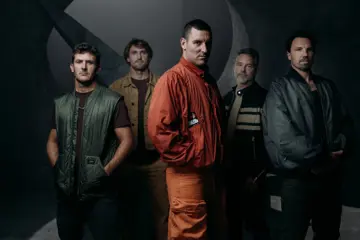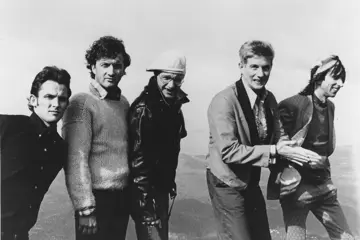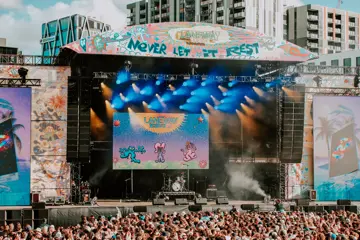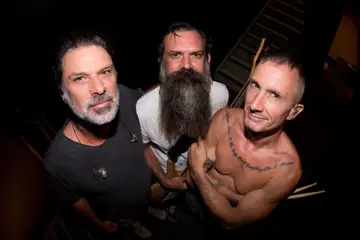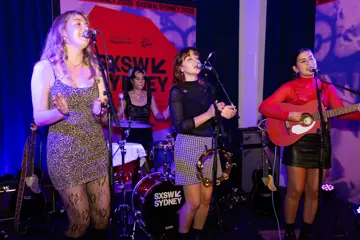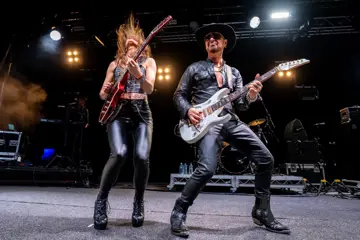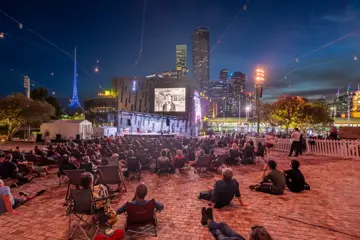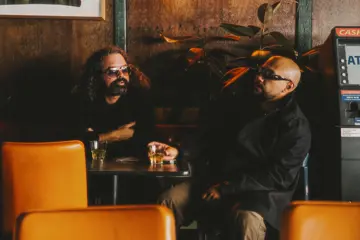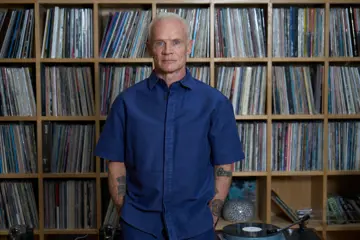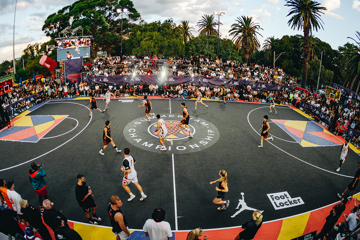Hollie Fifer thought she was too late. Arriving in Papua New Guinea in 2012 to research the country's constitutional crisis that saw two Prime Ministers vying for power and position - "One had the Supreme Court behind him, the other had the army" - the Australian documentary filmmaker felt too much time had passed for her to do justice to the story.
However, Dame Carol Kidu, who had essentially "saved the democracy of the country" by forming a one-person opposition party, was active in standing up against an international development company looking to build a five-star resort on Paga Hill, the location of a shanty town community that was home to 3,000 people. "And then the whole film turned and became about that," says Fifer.
That may have been how Fifer's documentary The Opposition started, but how it progressed from there is one of those stranger-than-fiction scenarios. Fifer was present for the PNG police's demolition of the Paga Hill settlement, which escalated into gunfire, catching the event as it unfolded on film. "I just thought it was chaos," she recalls. "It was not happening in any orderly fashion, and I thought there was no way for them to get away with this."
The situation soon got more surreal, however, when Dame Carol - who had been an active and outspoken champion of the Paga Hill community - retired from politics, formed her own consultancy company and began working with the development company behind the resort.
Don't miss a beat with our FREE daily newsletter
"That was dizzying," says Fifer. "I wanted to film her telling the community [about her decision], and she wouldn't allow me to do that. She wanted me to turn the camera off, which I did very reluctantly. There was an attitudinal change within her, which was the most confusing. All of us involved in the making of the film have been trying to assess it for years and none of us can understand it."
Dame Carol's about-face also disrupted the progress of The Opposition - she demanded that any footage of her in the film be removed, forcing Fifer to recut the film before its premiere screening in Toronto, replacing any footage of Dame Carol with a black screen and narration by Australian actor Sarah Snook outlining the situation. However, the Supreme Court last year lifted an injunction against the edits, and The Opposition will now be seen as it was originally intended at the Human Rights Arts and Film Festival, beginning this week in Melbourne and subsequently travelling to other capital cities around the country in the coming months. (Visit hraff.org.au for further information).
As fascinating and inexplicable as Dame Carol's motives and actions are, the true focus of The Opposition is Paga Hill community leader Joe Moses, who spearheaded the community's legal campaign against the development company who sought to displace them. Arrested without a warrant in 2014 and in hiding for years afterwards, Moses is currently in the UK, studying human rights law. "For Joe to be safe, and to continue his work as a human rights defender, is a massive achievement," says Fifer.
The backstory of this documentary, which began as a political study before evolving into a work of complex, human drama, reveals the extraordinary challenges that face filmmakers working in this genre, as well as the tenacity and stamina that goes into creating such a film. "It has been my major project for five years," Fifer says of The Opposition. "On the 12th of May, it will have been five years. I didn't expect that but I'm up for it - the willingness to leap off a cliff. As a documentary filmmaker, you have to be comfortable with the unknown. And follow what unfolds."

